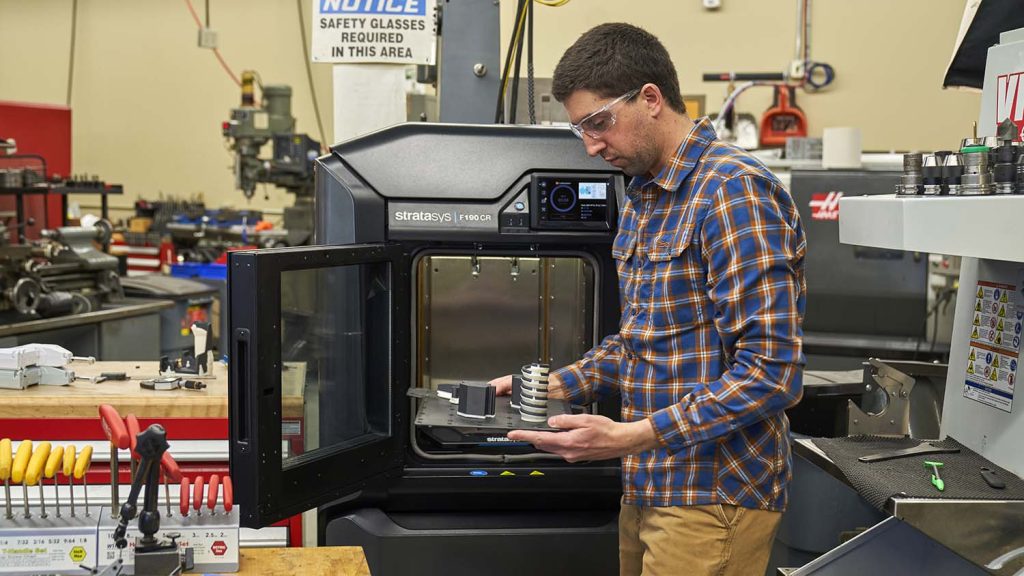Composite nylon-based materials have been added to Stratasys’ F123 3D printer line-up, with two new machines launched to enable carbon fibre parts on the desktop.
The introduction of the F190CR and F370CR 3D printers will enable users to produce parts in a new FDM Nylon-CF10 material reinforced with carbon fibre. Stratasys had previously launched a carbon fibre-filled ABS polymer for the F123 in February 2021.
The new 3D printers include integrated GrabCAD Print software to aid the CAD-to-print workflow as well as enterprise application connectivity through the MTConnect standard and its GrabCAD Software Development Kit.
Stratasys says that the composite-ready F123 Series printers include reusable build trays, a built-in camera for remote monitoring and a 7-inch control touchscreen.
The F370CR printer also offers auto-changeover of materials, which means there is no need to interrupt a build to replace materials – a new canister is simply put in place and the build continues.
The Nylon-CF10 chopped carbon fibre composite material for the F123 Series printers is listed as being ‘over 60% stronger and nearly three times as stiff’ as its base nylon material, while Stratasys states that the F190CR and F370CR printers also support several other engineered thermoplastics.
“Stratasys is providing manufacturers with the 3D printers and materials to support the growth of additive manufacturing on the factory floor, including these new printers that give manufacturers the ability to build stronger, print stiffer and print more accurately,” said Stratasys Manufacturing senior VP Dick Anderson.
“We have the verified and published data that proves these new printers have dimensional repeatability of up to 99% regardless of part size or geometric complexity. That, together with 99% uptime and unique service and support, gives manufacturers the confidence to accelerate their adoption of additive manufacturing.”
Both the composite F123 Series printers and FDM Nylon-CF10 are available for order now and are expected to ship in June 2022.






